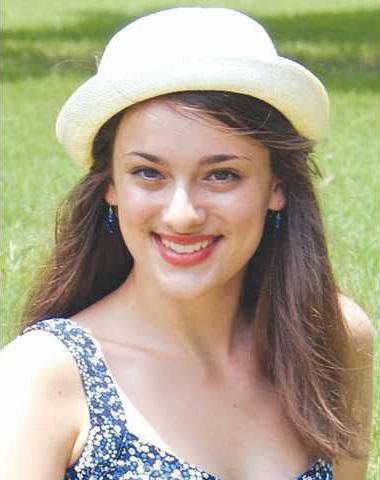Religion has never been a hot-button topic at my school: You believe what you believe, and it doesn't really affect everyone else. The few kids at North Hall High who aren't Christian don't look any different than the rest of the populous or isolate themselves.
When it comes to faith, we don't argue - if anything, we take the opportunities presented by our differences to learn.
All through elementary school, my mom came into my classes at Hanukkah to teach my friends about dreidels, latkes, menorahs and Maccabees. At Passover, she brought in a Seder plate and explained the rationale behind matzo. When I attended Enota, she headed up our classroom as Israel for "Winter around the World" night, bedecking the desks with blue and white and greeting everyone with "Shalom!" and "Happy Hanukkah!" My classmates have been nothing but receptive to my faith.
At my Bat Mitzvah, the majority of the attendees were not Jewish. My friends, teachers and prinicpal gave up their Saturday to come and support me as I crossed the threshold from child to adult.
It wasn't until the beginning of this year in my history class that we all realized how little we actually know about religions we don't subscribe to. I didn't fully understand Jesus' apostles, my friends had never encountered Orthodox Jews, and none of us could name even one of the five pillars of Islam.
I've heard concerns of religion having no place in school. What my parents knew as prayer time is now the "moment of silence," and some students choose to omit "Under God" when they recite the Pledge of Allegiance. I can understand these subjective choices, but I have begun to feel that while the rest of my education advances, my theological knowledge remains worryingly stagnant. Every now and then, a history course will touch on the religion of the area currently being studied, but the only thing I can say with confidence about Daoism is that it exists, and what little I know about Buddhism is from philosophy books. Application of religion in school is not the issue; education is.
The closest I have come to experiencing anti-Semitism was in fact due to adolescent ignorance. One day last spring, while everyone was filing into class, some boys were doing their normal rowdy routine, ribbing one another for something inconsequential. Their squabbling went on for a minute before I heard the words, "You gonna Jew me for it?"
My first reaction was confused silence. Next came red-faced emabarrassment. "Please don't use that phrase," I said quietly. I didn't know if they heard me, but the teacher had. As the bell rang, she sent the offender to the hall. The student rose with a "What for?"
Later that day, I was called to the pricipal's office. I began to cry before I reached the front lobby. I was confused because I was hurt and didn't know if I was allowed to be. I did not believe this student to be hateful, only insensitive, but did it matter once the words had been said? Was I to brush it off or make a scene? What would my parents say?
In the office, my classmate sat low in his chair, staring at a spot on the wall and looking as though he'd like to cry, too. I took the seat next to him, and he apologized, heartfelt and repentant. He hadn't intended to offend me or to insult my heritage.
When he finished, Mr. Gheesling asked me two simple questions: Did this student say something to offend me? Would I like to press charges?
I immediately answered no. He was not an anti-Semite. He'd just made a stupid teenaged mistake and as an otherwise intelligent young man did not deserve to have it on his permanent record. He thanked me.
Mr. Gheesling held us for a minute more, informing my peer about a call to his mother and his verdict of three days of in-school suspension.
This was not an incident of scorn or hostility. This particular student hadn't had my mom's annual lessons in elementary school, so perhaps Judaism was foreign enough to him that he could refer to it jokingly without feeling any emotional ties to the subject.
I wear my Star of David necklace with pride and only encounter innocent curiosity in regards to my faith. My friends who lead a weekly Bible study group before school often invite me eat muffins and study with them. If everyone sat down for breakfast to discuss topics they didn't understand, perhaps the world would be a better place.
The issue of religion in school is not that there is too much practice, but too little in-depth education. We can not fully respect what we do not understand. Just as Helen Keller said, "The highest result of education is tolerance."
Rachel Glazer is a senior at North Hall High School.

